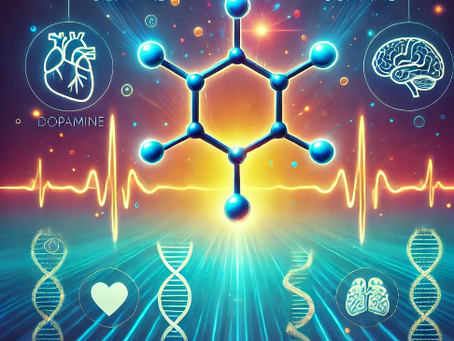top of page


Barometric Pressure Changes and Health: An Evidence-Based Review
Barometric pressure shifts can influence joint pain, migraines, respiratory and digestive health, with effects varying by individual. While strong evidence links pressure changes to osteoarthritis pain, impacts on autoimmune and neurodivergent groups remain largely unstudied.

Jay Getten
Jan 2622 min read


Complexity at the Intersection: ADHD, Autism, Dyspraxia, RSD, and Emotional Hyperarousal
Complex neurodivergence rarely fits a single label. This article explores how ADHD, autism, dyspraxia, RSD, and emotional hyperarousal overlap to shape perception, emotion, and identity, and calls for support systems that honor neurodivergent depth, creativity, and dignity.

Jay Getten
Jan 105 min read


The Wisdom of the Wound: Introducing a Podcast for Healing, Integration, and Authentic Living
Discover how our emotional wounds, when compassionately witnessed and integrated, become sources of wisdom and healing. The Wisdom of the Wound Project blends Jungian and CBT insights with neurodiversity, personal storytelling, and authentic dialogue, inviting you on a journey toward wholeness.

Jay Getten
Nov 15, 20258 min read


Understanding the Impact: The Often-Overlooked Reality of ADHD Burnout
Discover what ADHD burnout is, how it mimics anxiety and depression, and why it’s often missed in adults. Learn about unique symptoms, risks of misdiagnosis, and find a free research-based tool to support self-reflection and advocacy, created through a neurodiversity-affirming, compassionate lens.

Jay Getten
Sep 18, 202511 min read


Beyond the Label: Rethinking Therapy for ADHD and Autism
Rethinking therapy for ADHD and autism means moving beyond one-size-fits-all models to approaches built for the mind they serve. This article explores the Five Principles for Change — from correct identification to creating psychological safety — and draws on research to show why neurodiversity-affirming care works. The result? Therapy that nurtures authenticity, reduces harm, and helps clients truly thrive.

Jay Getten
Aug 14, 20255 min read


Understanding Dopamine: From Reward to Whole-Body Health and Personalized Medicine
Introduction Dopamine, often called the "feel-good" chemical, is known for its role in experiencing pleasure and reward. Recent studies...

Jay Getten
May 2, 20255 min read


Unraveling the Mystery of Dysgraphia: Understanding the Symptoms and Solutions
Introduction Envision attempting to compile a simple grocery list, only to encounter difficulties with letter alignment and fragmented...

Jay Getten
Mar 21, 20256 min read


Autism in Females: Diagnosis and Support Challenges
Autism in females is often misdiagnosed due to outdated criteria and masking. Learn how recognition and support are evolving.

Jay Getten
Mar 18, 202511 min read


Effects of In-Utero Substance and Alcohol Exposure on Child Development
Prenatal exposure to substances, including alcohol, can influence a child's development in physical, cognitive, and behavioral domains.

Jay Getten
Mar 12, 20257 min read


A Comprehensive Guide to Sensory Processing Disorder (SPD)
Sensory Processing Disorder affects how the brain interprets stimuli, impacting daily life. Learn more about symptoms, causes, and support.

Jay Getten
Mar 4, 202511 min read


Examining Medical Gaslighting and Outdated Diagnostic Practices in Adult ADHD & Autism Assessment and Treatment
Medical gaslighting and outdated ADHD diagnostics leave adults misdiagnosed or ignored. It's time for change in clinical practice.

Jay Getten
Feb 16, 202515 min read


Unlocking Dyscalculia: Myths, Realities, and the Road to Empowerment
Introduction Dyscalculia, often referred to as "math dyslexia," is a neurological learning disability that affects approximately 5–7% of...

Jay Getten
Feb 6, 20257 min read


How can healthcare practitioners support neurodiversity in their practice?
Neurodiversity in healthcare: Moving beyond deficits to a strengths-based, biopsychosocial approach for assessment and treatment.

Jay Getten
Feb 6, 20256 min read


Navigating Neurodiversity: Identifying Key Traits and Characteristics in Clinical Settings
Neurodiversity traits like alexithymia, RSD, and hyperarousal shape clinical care—understanding them is key to effective assessment.

Jay Getten
Feb 5, 20258 min read
bottom of page